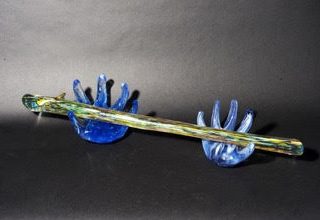
Being Surprised
One of my heroes, Michael Polanyi (the Nobel prize winning scientist who became a philosopher later in his life—after fleeing Germany and the holocaust), was asked an important question regarding reality. He had written often about the arbitrary nature of most “realistic” assessments and was challenged to identify how he knew that something is “real.” (Polanyi, 1969) Apparently, Polanyi paused and then said that he knew something was “real” if it surprised him. One of his colleagues then indicated that this surprise seems to be what it is like to confront Yahweh.
Polanyi took a step back. He had grown up with a Jewish heritage but had left it far behind. Yet, here was his heritage coming back to the fore. Yahweh may represent something about reality for Polanyi. As I noted with regard to the Shadow function, our encounter with reality might be found at the moment when we are surprised, and powerful unconscious processes and images emerge to yield rich and profound insights. Such was the case for me at this summit – I was surprised and I learned.
Carl Jung, who has provided us with the description of the shadow function, has something similar to say about surprises and “reality”—though he addresses these matters at a different level than Polanyi. In his autobiography (Memories, Dreams and Reflections) Jung (1963, p. 356) offered the following reflection on his own life and learning:
It is important to have a secret; a premonition of things unknown. It fills life with something impersonal, a numinosum. A [person] who has never experience that has missed something important. [They] must sense that [they live] in a world which in some respects is mysterious; that things happen and can be experienced which remain inexplicable; that not everything which happens can be anticipated. The unexpected and the incredible belong in this world. Only then is life whole. For me the world has from the beginning been infinite and ungraspable.
Like Polanyi, Jung (1963, p. 199) set out to be a scientist—and like Polanyi was quite successful at his craft. But then he was surprised:
As a young man my goal had been to accomplish something in my science. But then I hit this stream of lava, and the heat of its fires reshaped my life. That was the primal stuff which compelled me to work upon it, and my works are a more or less successful endeavor to incorporate this incandescent matter into the contemporary picture of the world.
For Jung, the surprise is found in the surfacing of unconscious content. Reality is to be found not in (or at least not just in) the conscious world. It is to be found in the often “awe-filled (numinostic) world that undergirds our conscious view of the world. He finds that his unconscious is providing him with the “gift” of fiery new learning. Jung actually considers this “an act of grace.” (Jung, 1963, p. 199)
There was another moment during the summit when I found myself surprised and open to new learning—and it probably aligned with both Polanyi’s surprise about his Jewish heritage and Jung’s perspective on unconscious life. I participated in a small group exploration of the role played by spirituality in the world of executive coaching. Is it appropriate for spirituality to enter into a coaching dialogue with executive leaders and, if so, how might it be engaged? As the one “secular” member of this small group, I agreed to be the “client” in a coaching session oriented toward spiritual matters.
My seasoned coach (with a strong spiritual background) asked me to focus on my late teenage years and early 20s. Where was I at this point in my life and what values and life purposes were I struggling with at this time? This was a wonderful starting point and I surprised myself with a reflection back on this time in my life and emerged from this coaching session with some important personal insights. I noted to members of this group that I could have used this coaching session several years ago when I was making difficult decisions regarding the future of the graduate school where I had served for many years as president. At least in this one instance, an exploration of spiritual formation would have been of immediate value to me as a leader in an executive position.
Download Article 1K Club


















